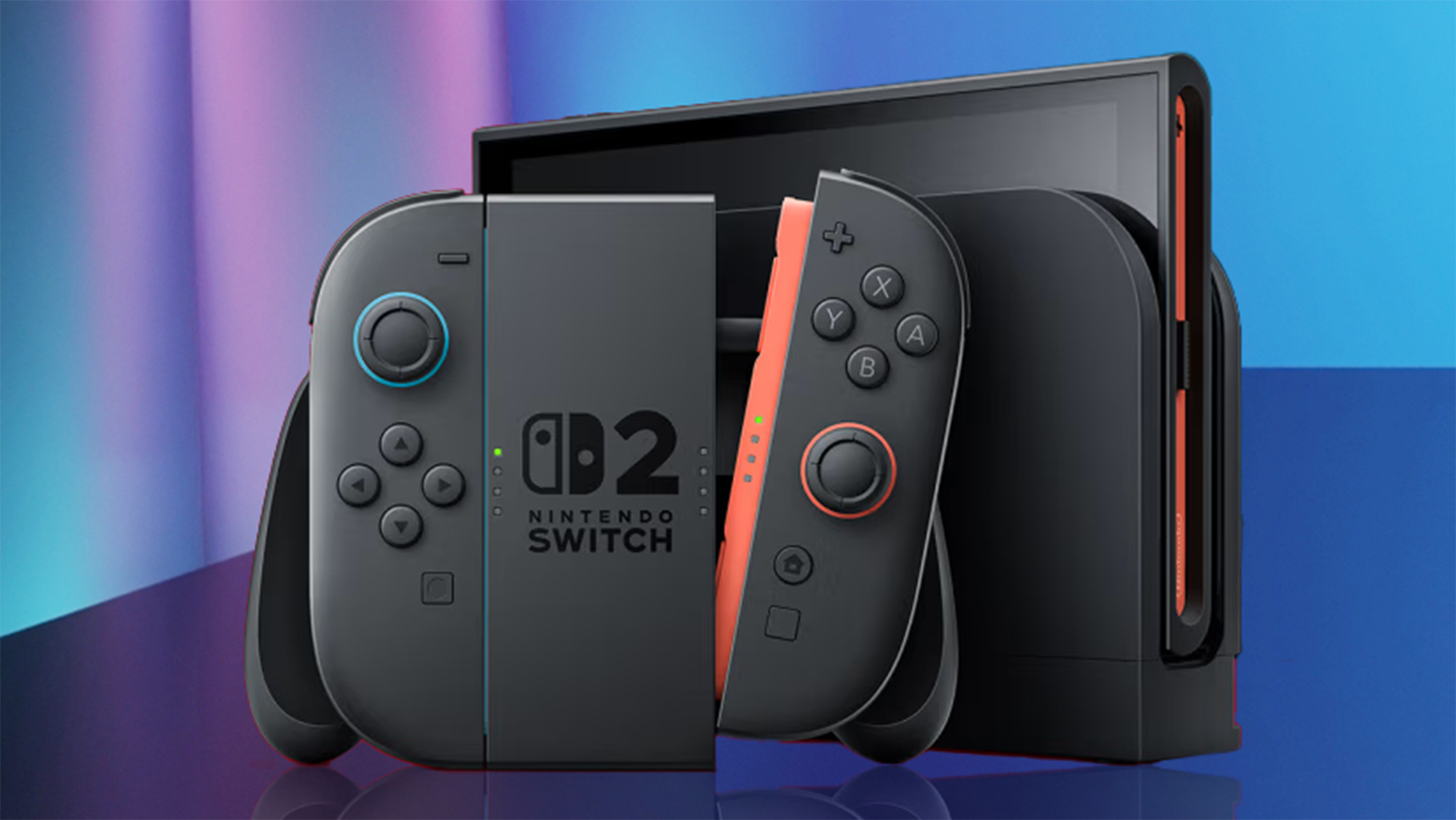The best Android tablets in 2025
These are the best Android tablets you can buy
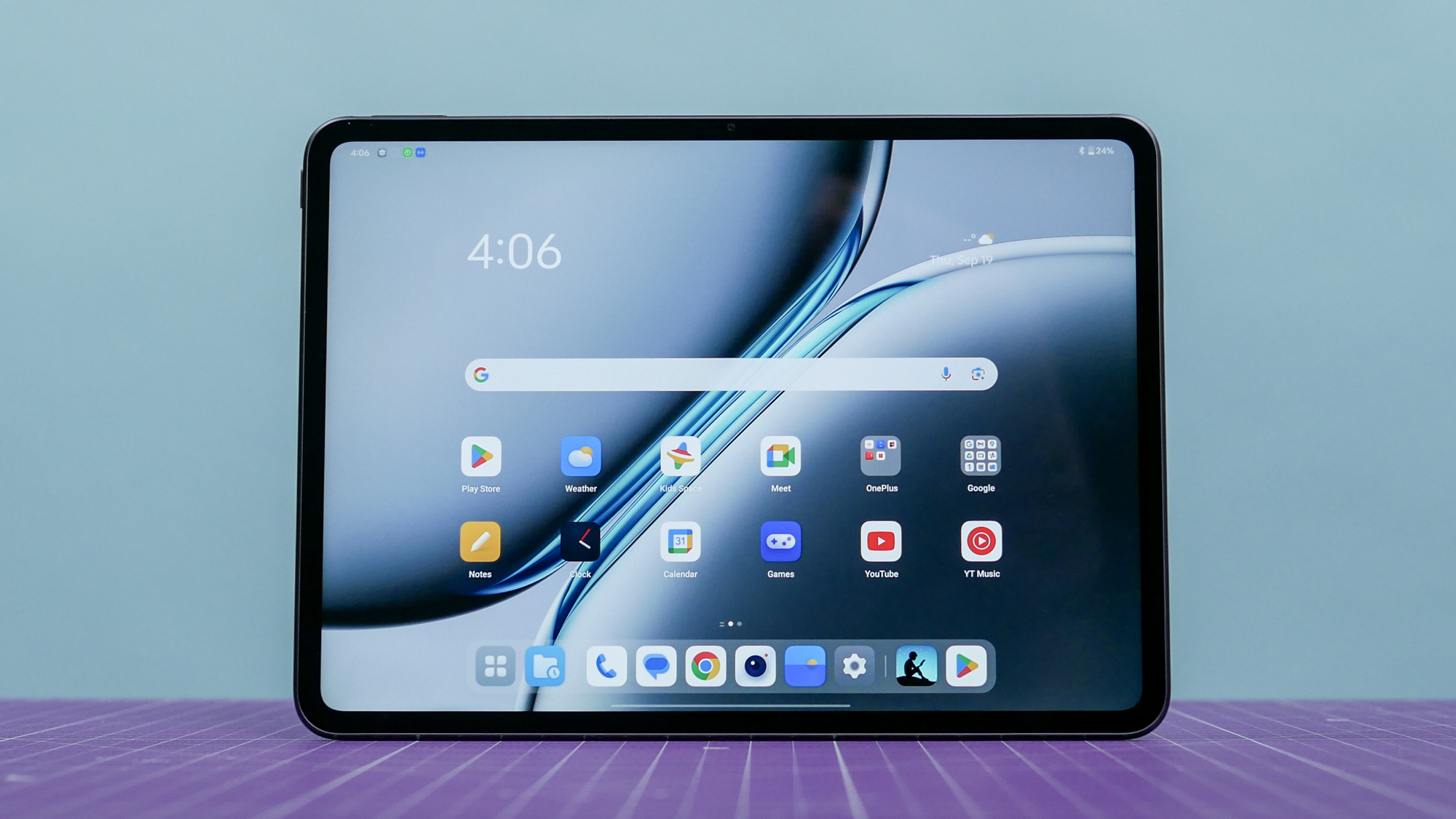
The best Android tablets can do it all. They pack enough power to run apps and games with minimal or no slowdown. They're also energy-efficient enough to last long on a single charge. And when paired with a keyboard attachment, some Android tablets can even double as decent replacements for the best laptops.
We've tested many Android tablets to find the right ones for specific users. This includes slates like the OnePlus Pad 2, with its unique aspect ratio and rear camera, the super-sized Samsung Galaxy Tab S10 Ultra, and the affordable Amazon Fire HD 8.
We measure battery life, performance and screen quality. App quality is a lingering question for Android tablets. Because of that, your decision might start with how many apps you want — as not all Android tablets get the same apps. That said, it's easier to side-load apps on Android tablets than on the best iPads.
Here are the best Android tablets, based on our hands-on testing and review of dozens from Amazon, Samsung, and even OnePlus.
The quick list
Here's a quick overview of the best Android tablets you can buy right now based on our testing and reviews.
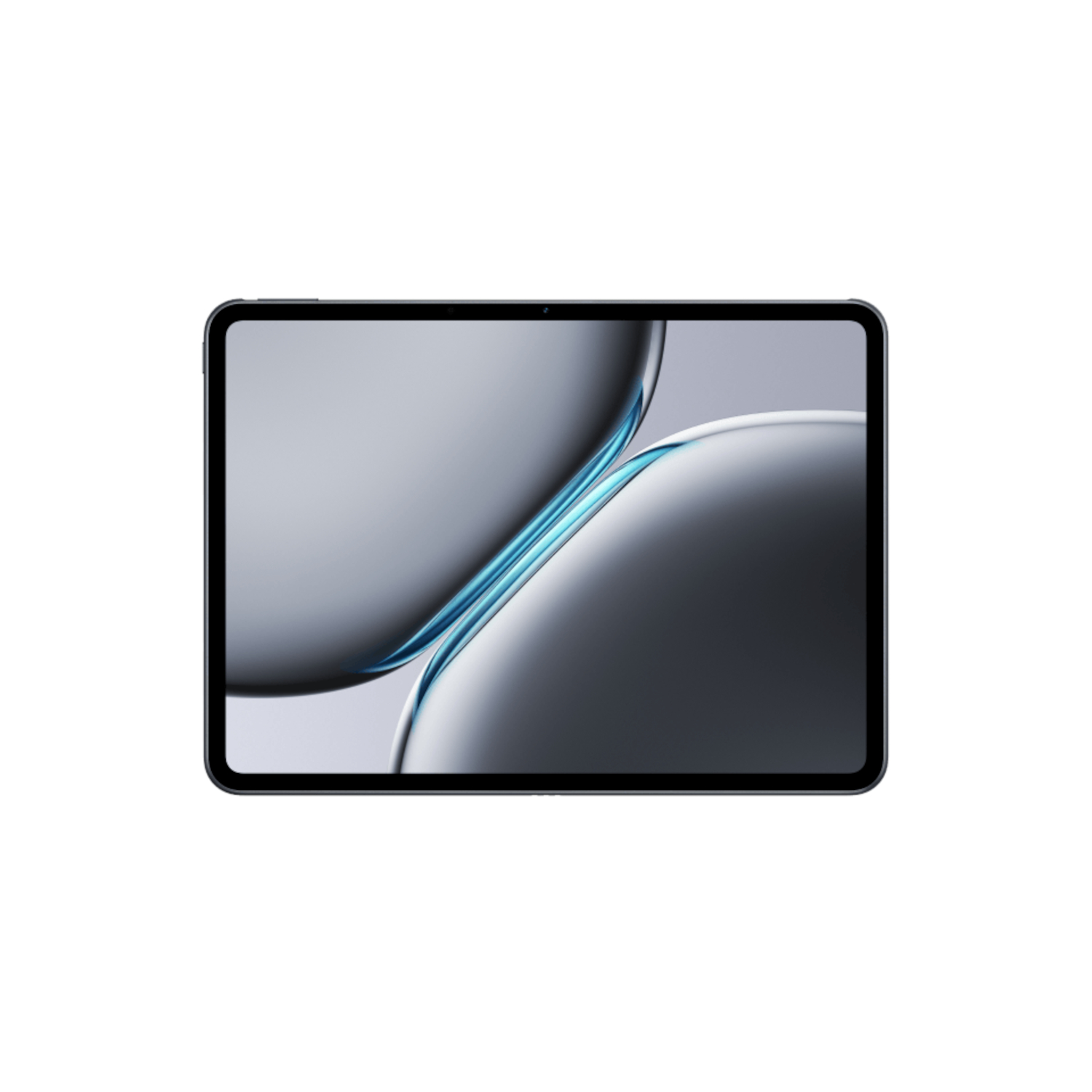
With a huge 13MP rear camera, curved edges and a unique 7:5 aspect ratio, the OnePlus Pad 2 makes a bold statement. Videos and ebooks look great on its vivid 12.1-inch 144Hz display. Its Snapdragon 8 Gen 3 CPU and Android 14 OS make apps and games run smooth and fast.
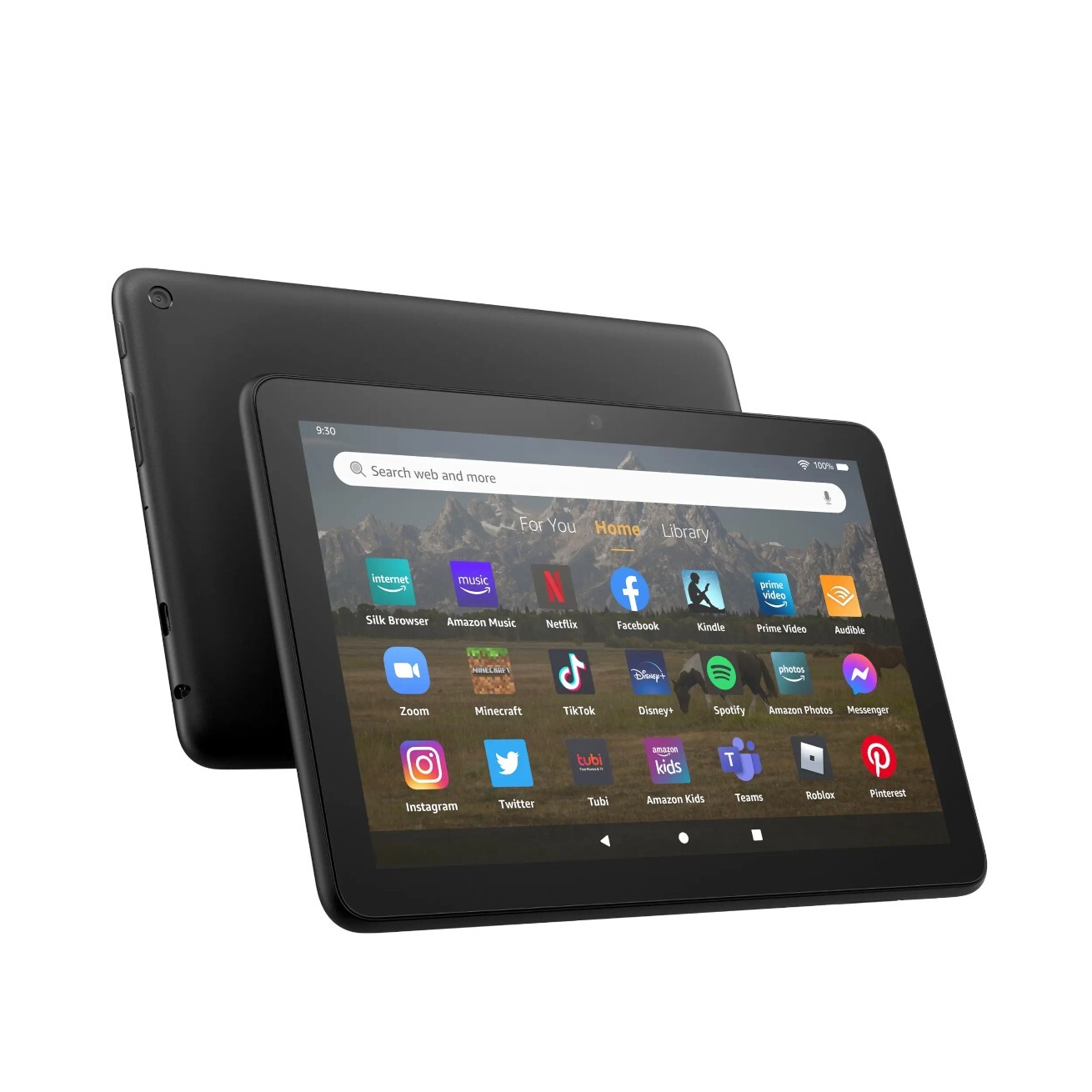
The Amazon Fire HD 8 represents the sweet spot in terms of price, power, and functionality. This 12th-generation Fire HD 8 tablet packs roughly 30% more power than the last model. It’s also lighter yet more durable. This is an overall fantastic value for an Android tablet.
Read more below
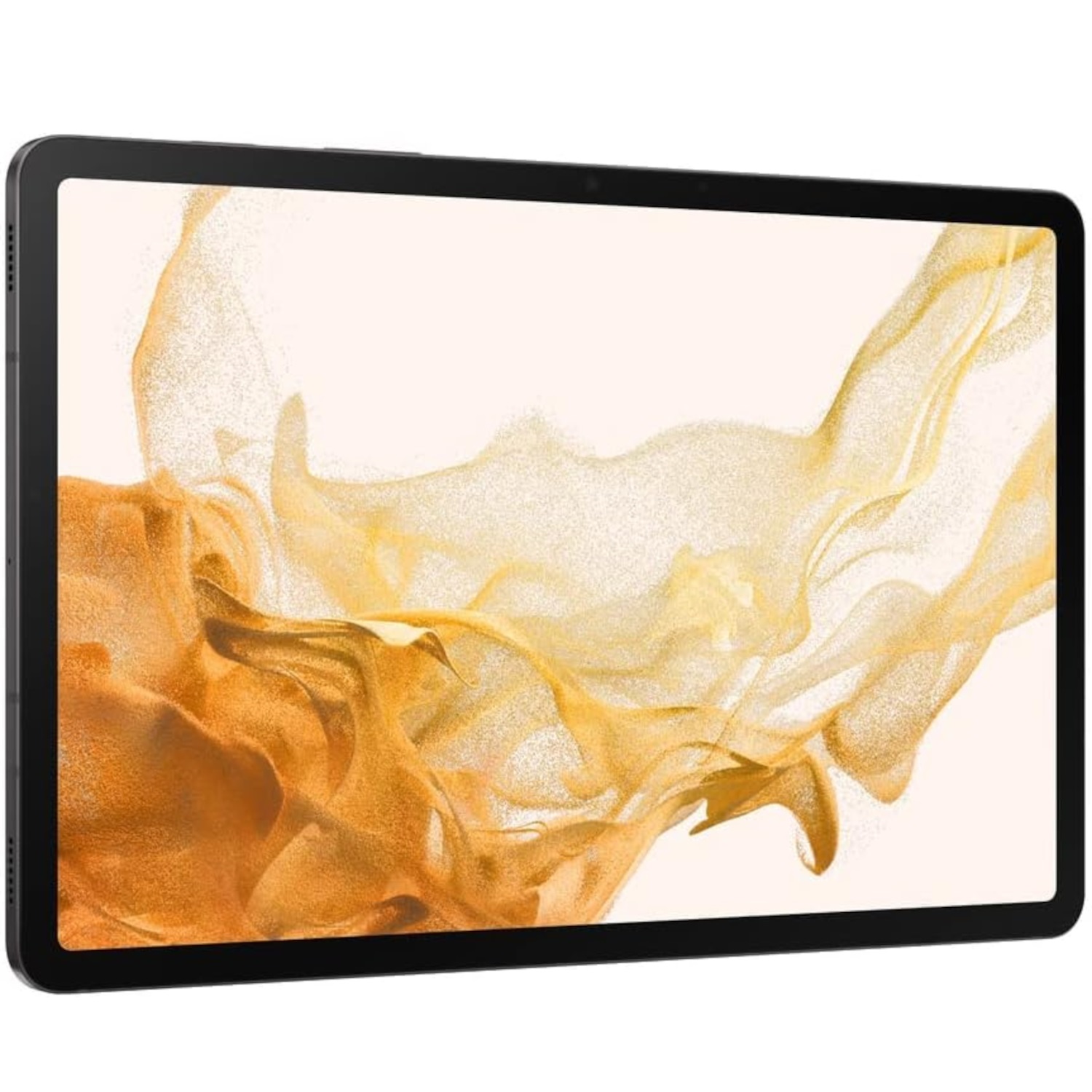
The Galaxy Tab S9 is the best overall Samsung tablet, thanks to its versatility. This OLED-equipped slate is great for both work and play. If you need a solid, premium Android tablet, you can't go wrong with the Samsung Galaxy Tab S9.
Read more below
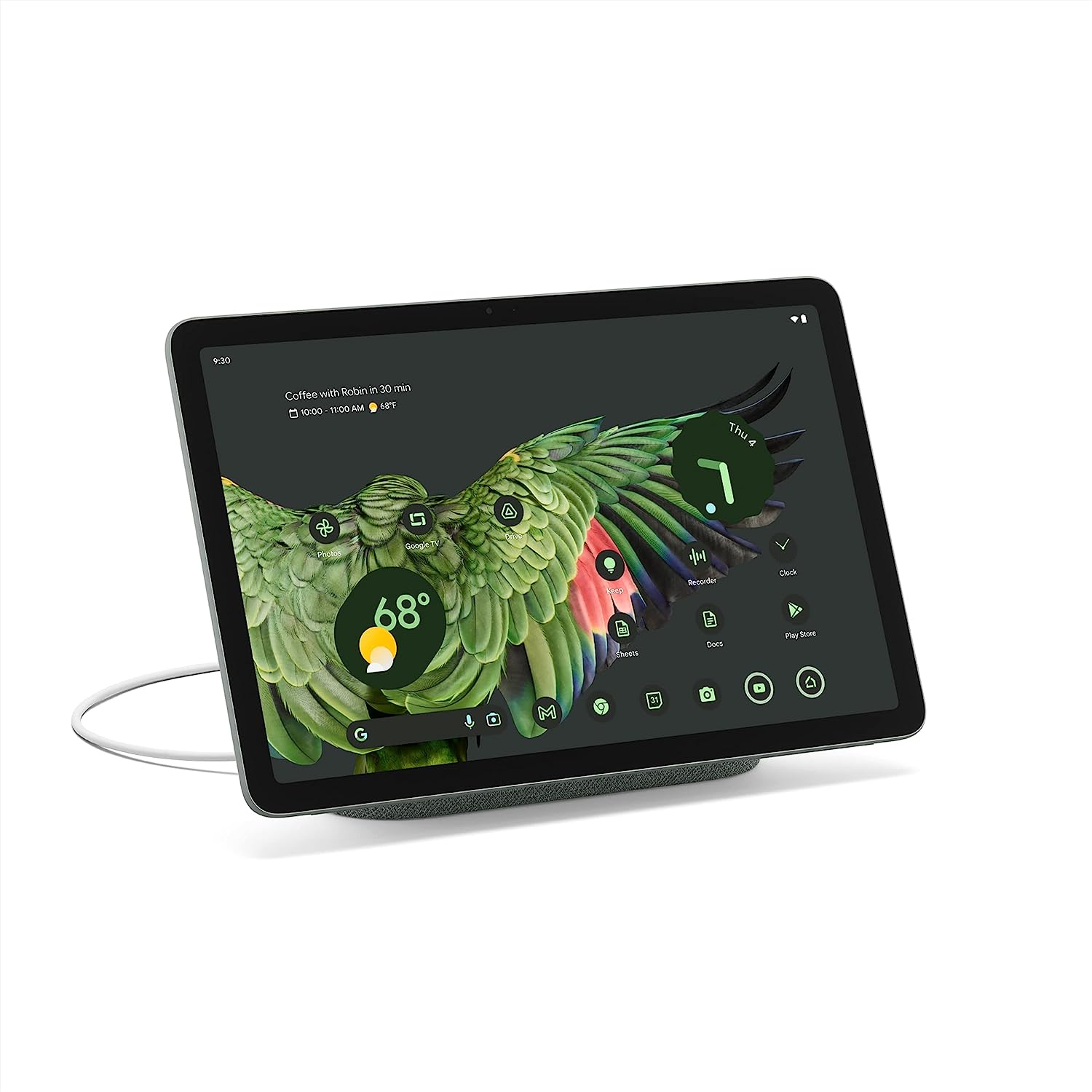
The Google Pixel Tablet stands out from every other on this list by being the only one to come with its own speaker/charging dock. No other tablet on the market doubles as an out-of-the-box smart home hub in quite the same way, and we found it works quite well.
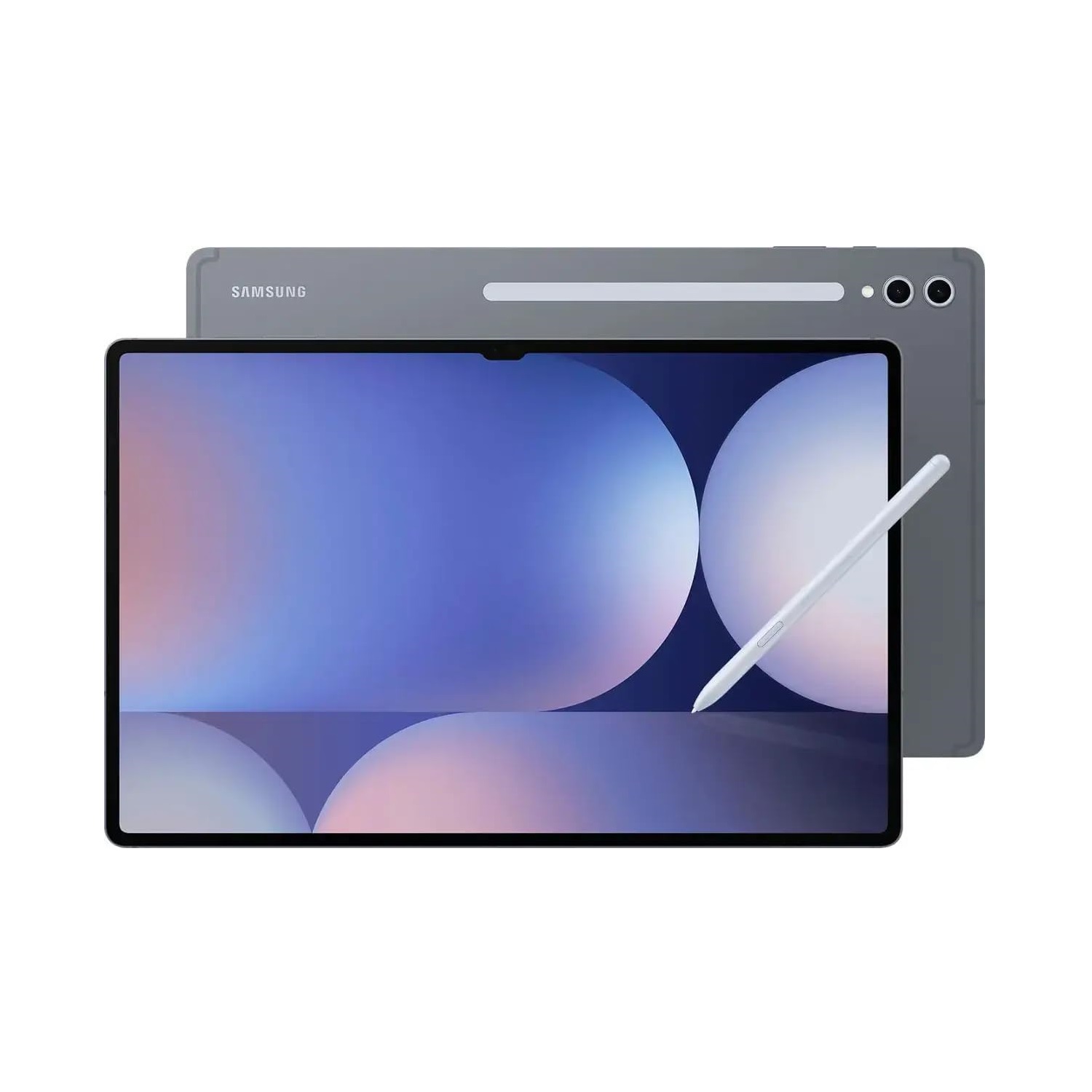
Samsung took “go big or go home” to heart when creating the Galaxy Tab S10 Ultra. This 14.6-inch beast is easily one of the largest tablets we’ve ever reviewed. But beyond its monstrous size, the Tab S10 Ultra has enough power packed into its thin chassis to potentially turn it into a laptop replacement.
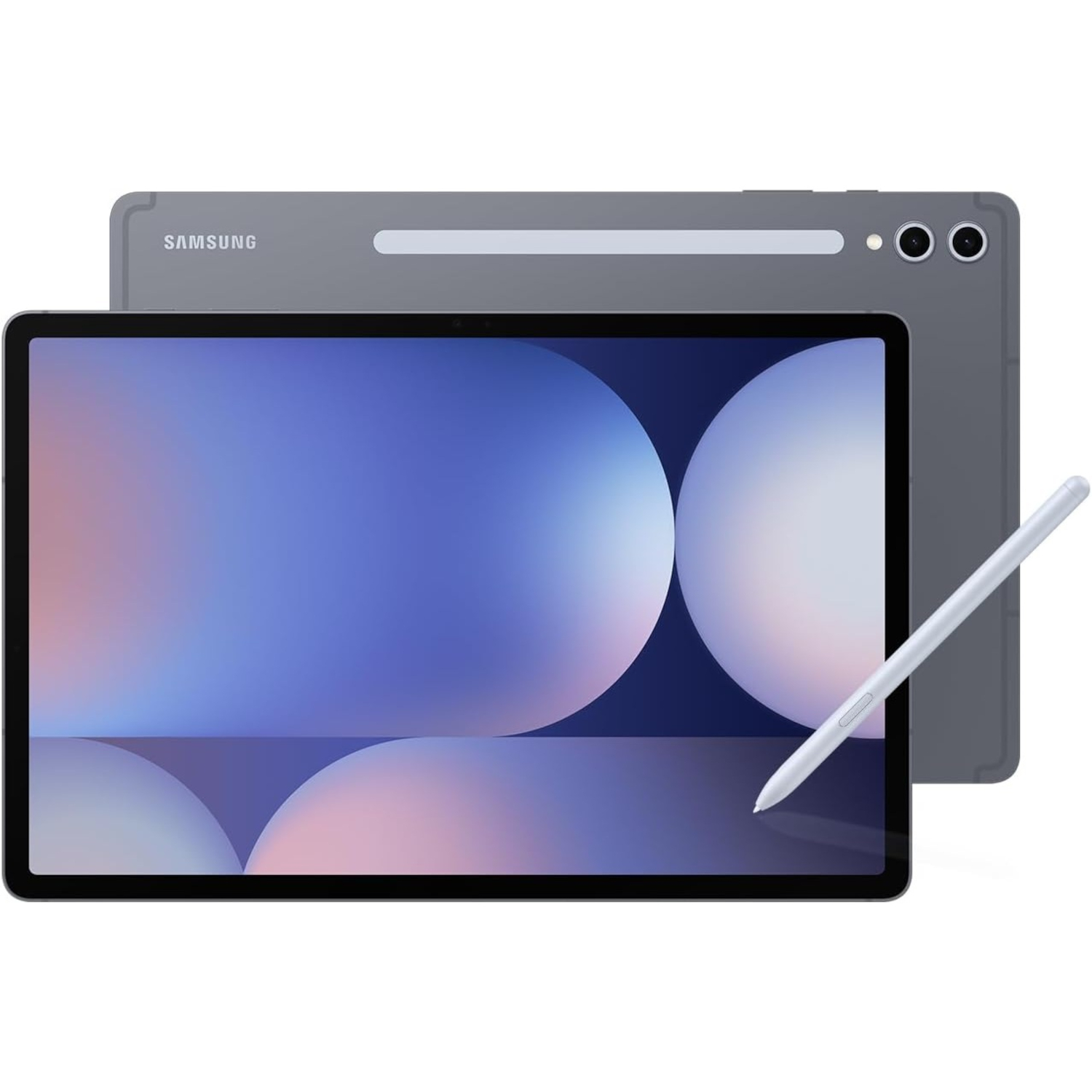
The Samsung Galaxy Tab S10 Plus hits the sweet spot between the Galaxy Tab S9 and Tab S10 Ultra. It packs AI features and costs less than $1k. It lacks power and battery longevity compared to its rivals, but it offers enough of both to make it a great purchase for most people.

Tony is a senior writer at Tom’s Guide covering laptops, tablets, Windows, and iPadOS. He enjoys Android tablets for their versatility and easy-of-use with third-party accessories. Some of his favorites include Samsung Galaxy Tab and OnePlus Tab tablets. He's always on the hunt for the next best Android tablet.
The best Android tablets you can buy today
Why you can trust Tom's Guide
The best Android tablet overall
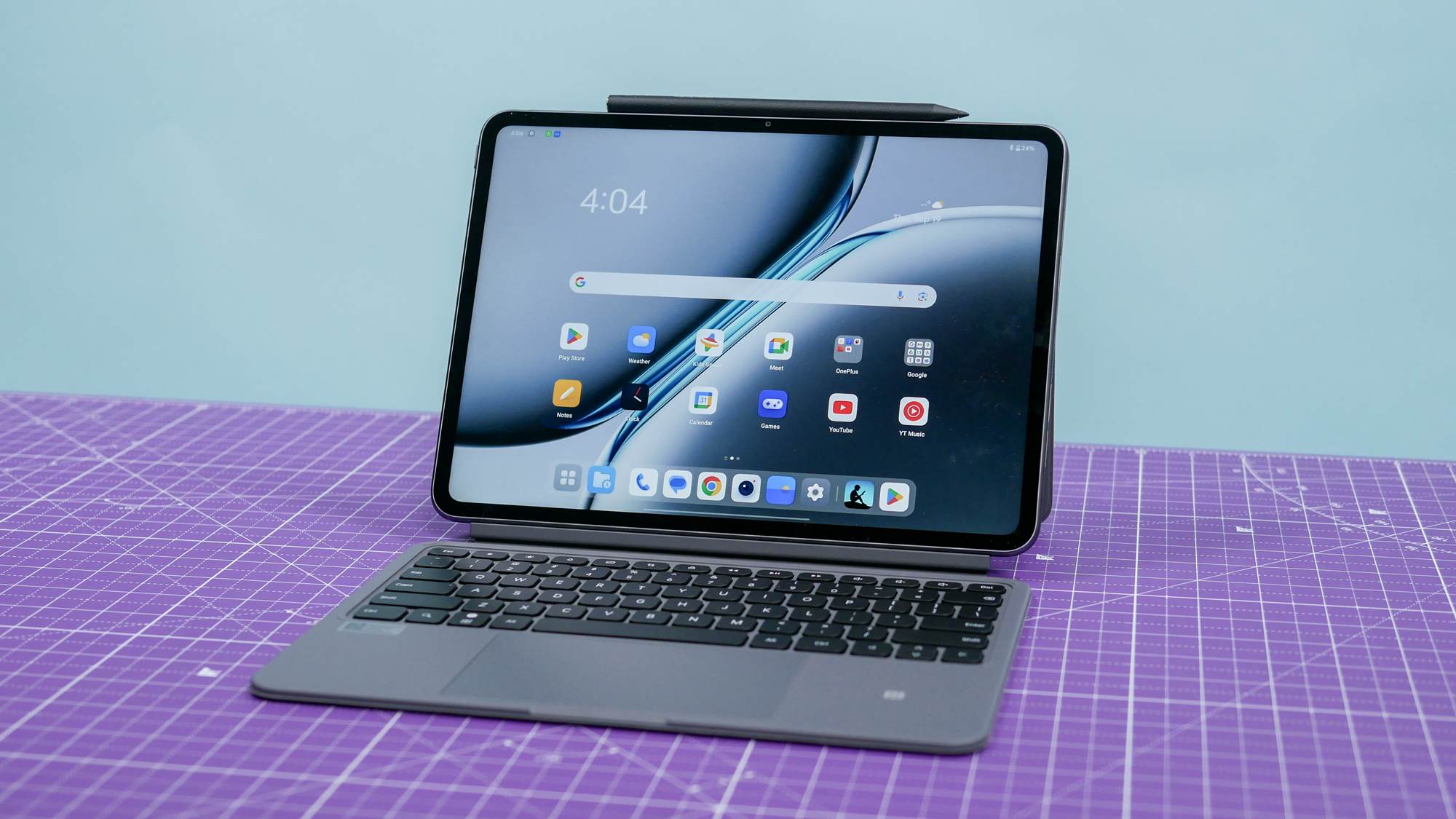

Specifications
Reasons to buy
Reasons to avoid
The OnePlus Pad 2 is an Android tablet worth getting excited about and a worthy successor to its predecessor. With a huge 13MP rear camera, curved edges and a unique 7:5 aspect ratio, OnePlus’ newest tablet stands out from the competition. Like the original OnePlus Pad, it's now one of my favorite Android tablets.
This slate has plenty going for it besides its distinctive design. Videos and ebooks look great on its vivid 12.1-inch 144Hz display, and thanks to its Snapdragon 8 Gen 3 CPU and Android 14 OS (an upgrade over the old MediaTek Dimensity 9000 and Android 13, respectively), apps and games run smooth and fast. The lightweight OnePlus Pad 2 also has exceptional battery life, lasting nearly 15 hours in our testing.
Ironically, the only negative aspect of this tablet is its 13MP rear camera. While the picture quality isn't horrendous, images aren't as sharp and defined as I would have liked. However, the upgraded speakers (six speakers instead of four from before) deliver incredible sound. So even if picture quality isn't the best, you're at least treated to a fantastic aural experience.
The OnePlus Pad 2 looks great and runs even better. If you’re looking for an excellent Android tablet for under $600, you can’t go wrong with this one.
Read our full OnePlus Pad 2 review.
The best affordable Android tablet
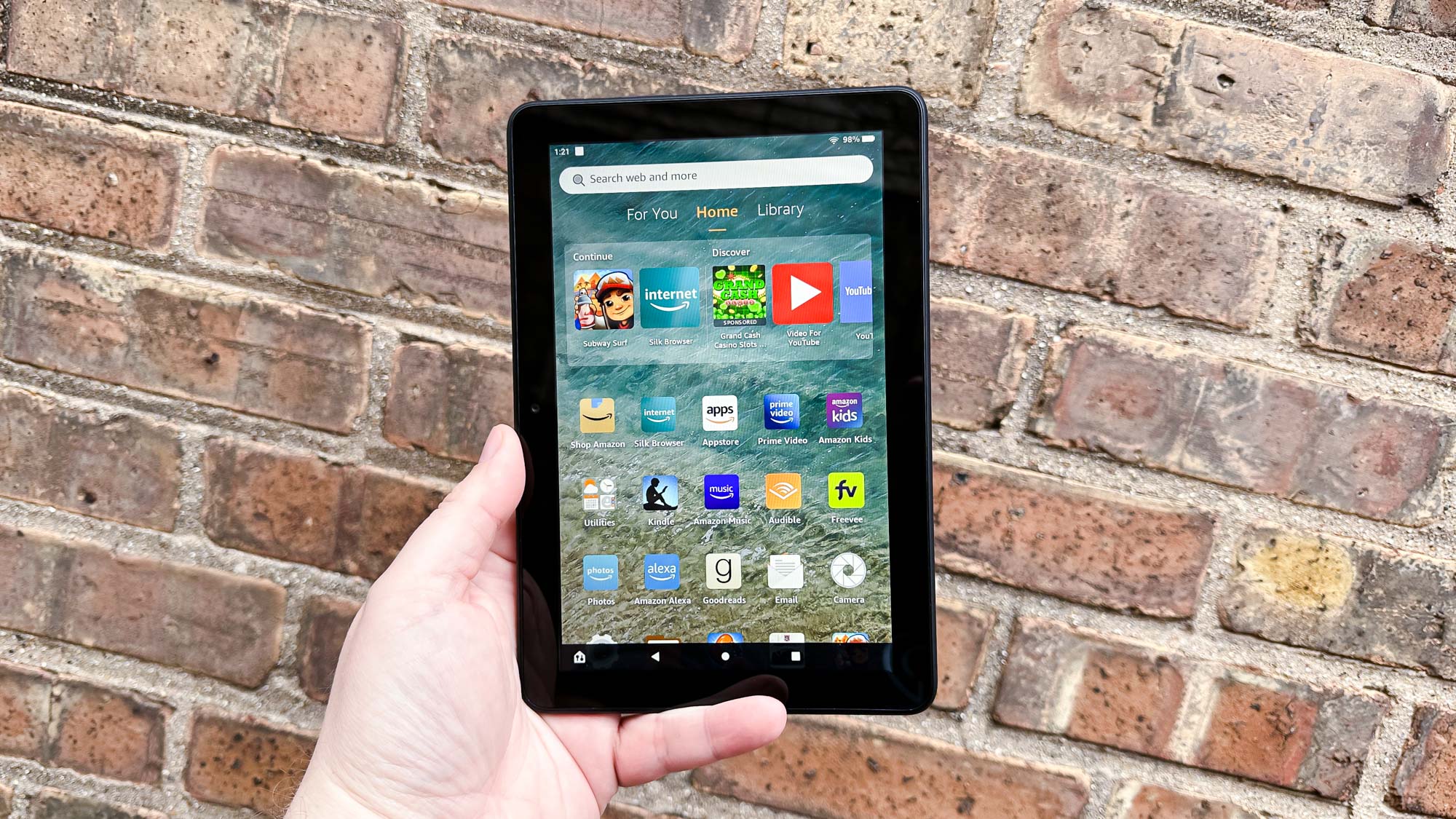

Specifications
Reasons to buy
Reasons to avoid
Amazon’s tablets have long maintained the reputation of being shockingly good for their low prices, and the middle-sized device — the Amazon Fire HD 8 — represents the sweet spot in terms of price, power, and functionality. That’s unchanged with the new 2022 model, although it comes with some nice tweaks and upgrades from the last edition.
This 12th-generation Fire HD 8 tablet packs roughly 30% more power than the last model, helping to smooth out some of the spurts of lag we saw when we reviewed the older hardware. It’s also lighter and feels more durable. Granted, it’s also $10 more expensive than before.
But the overall experience and value equation are much the same: this is an amazingly solid tablet for the price ($100) if you can deal with modest performance, along with more pressing annoyances like lock screen ads and the limitations of Amazon’s app ecosystem. If that doesn't bother you, this is a good budget tablet to get.
Read our full Amazon Fire HD 8 review.
The best Samsung tablet
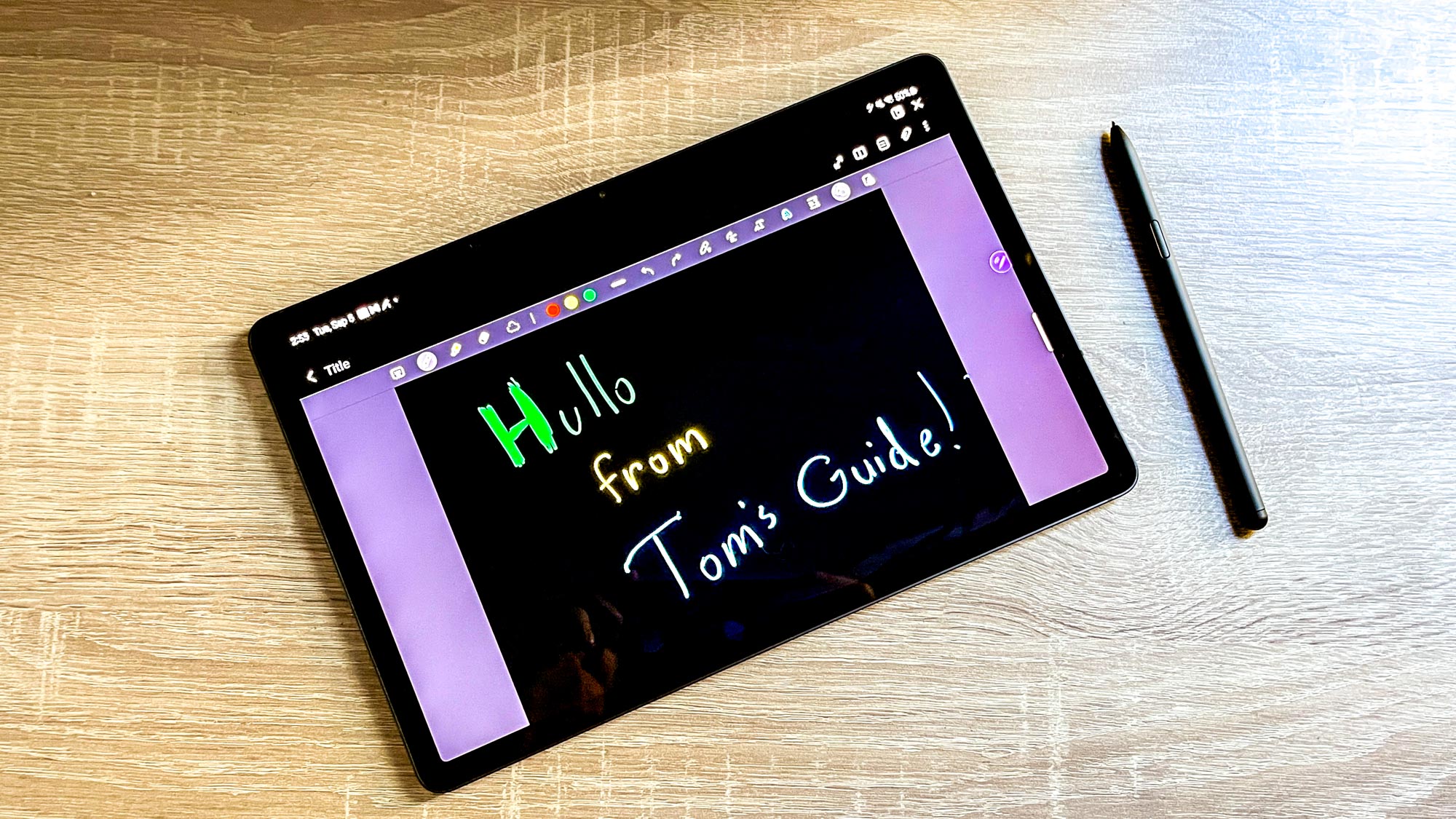

Specifications
Reasons to buy
Reasons to avoid
The Galaxy Tab S9 is good at a lot of things, but it's best at being a premium Android tablet. And since Samsung hasn't released an updated Tab S10 model, this slate remains the best Samsung tablet you can buy for general use because it delivers a compelling blend of performance, portability and screen quality for the price.
You can use it to get work done in a pinch, but in our experience, it's best enjoyed as a speedy all-purpose device for making work and play a bit more enjoyable.
Though basically identical to its predecessor, the S9 is more powerful and has a beautiful new AMOLED display that makes everything you do on it look great. On the couch, it's great for gaming or reading comics. At work, it's nice to have as a note-keeping device or secondary display, especially if you go through the trouble of investing in the Galaxy ecosystem and making your workspace DeX-friendly.
If you absolutely must have the biggest, baddest Android slate possible you probably want the Galaxy Tab S10 Ultra also on this list, but if you just need a great premium Android tablet the Galaxy Tab S9 delivers.
Read our full Samsung Galaxy Tab S9 review.
The best smart home Android tablet
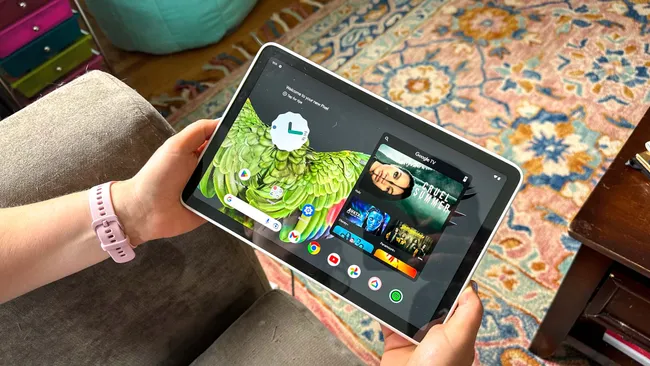

Specifications
Reasons to buy
Reasons to avoid
The Google Pixel Tablet stands out from every other on this list by being the only one to come with its own speaker/charging dock. It's both a tablet and a smart home device.
It's a clear attempt on Google's part to help the tablet stand out from the pack, and it pays off. No other tablet on the market doubles as an out-of-the-box smart home hub in quite the same way, and we found it works quite well.
The speakers on the tablet's charging dock are also great, delivering more satisfying bass at the expense of some treble. It's a solid Android tablet too, comparable to Apple's base iPad despite costing $50 less. However, its support for various smart home technologies varies, and it can't match the capabilities or sound quality of a good dedicated smart home hub like the Nest Hub Max.
Read our full Google Pixel Tablet review.
The best laptop replacement
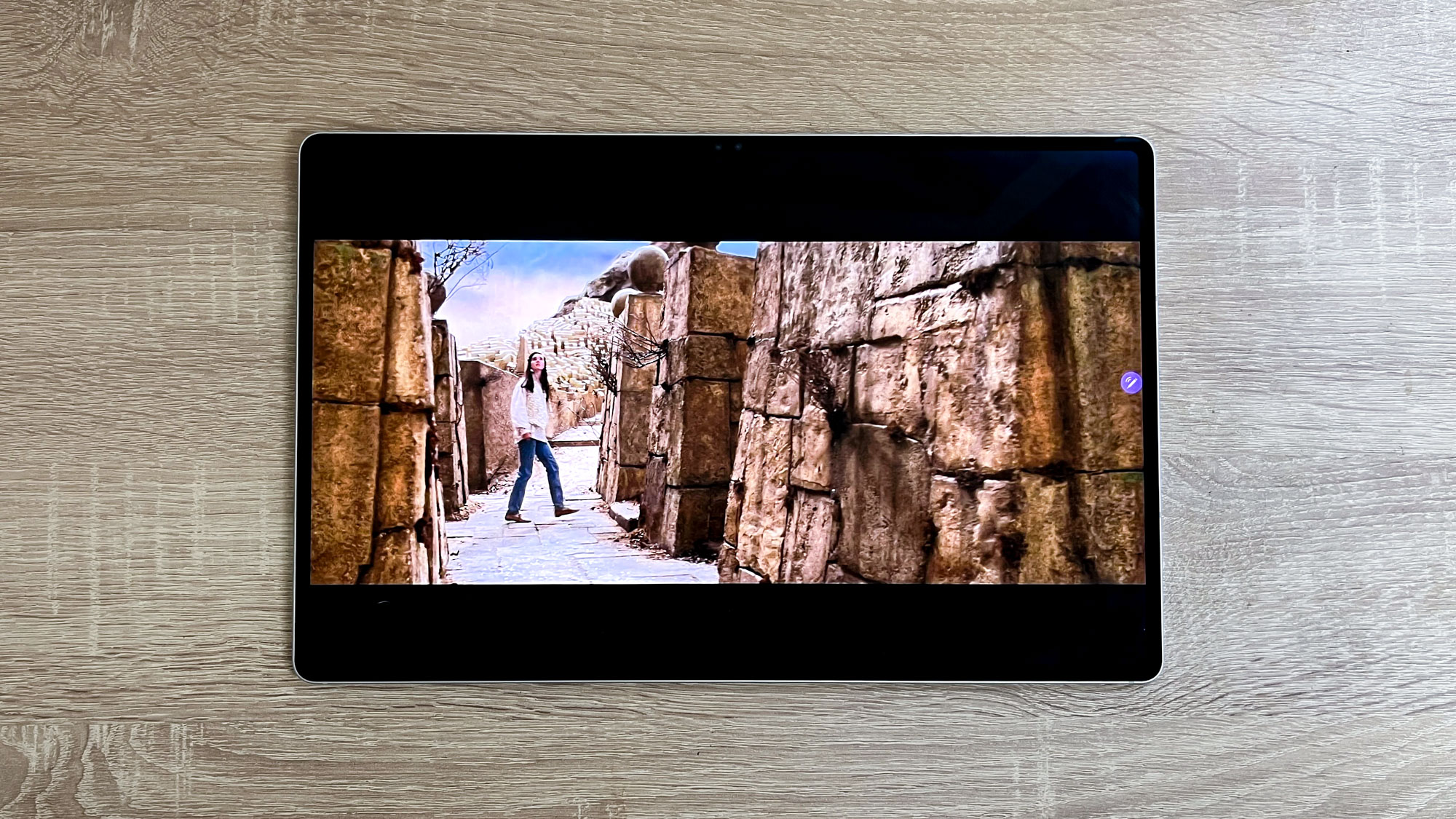

Specifications
Reasons to buy
Reasons to avoid
The Samsung Galaxy Tab S10 Ultra is the ultimate Samsung tablet for those who absolutely need a ginormous slate.
Like its predecessor, the Samsung Galaxy Tab S9 Ultra, this model features a gorgeous 14.6-inch OLED display, an ultra-slim svelte design and plenty of power thanks to its speedy MediaTek Dimensity 9300+ processor. If you’re ingrained in the Samsung ecosystem and need a tablet with laptop-like functionality, the Galaxy Tab S10 Ultra will serve you well.
Of course, Samsung’s monstrous tablet isn’t flawless. While you can use it as a laptop when it’s paired with the Samsung Book Cover Keyboard, the accessory adds an extra $200 cost to an already pricey machine. And while the Tab S10 Ultra is a light 1.58 pounds, its large size can make it cumbersome to use when compared to a smaller tablet.
However, if you absolutely want the biggest tablet possible, this is the one to buy. While it can't outperform or outlast the iPad Pro M4 (don't miss our Samsung Galaxy Tab S10 Ultra vs iPad Pro M4 guide), it delivers killer performance for an Android tablet and one of the biggest, most beautiful screens you can get in the category. Plus, Samsung throws in a stylus for free, so you can start doodling and jotting down notes right away.
Read our Samsung Galaxy Tab S10 Ultra review.
The Best 12-inch Android tablet
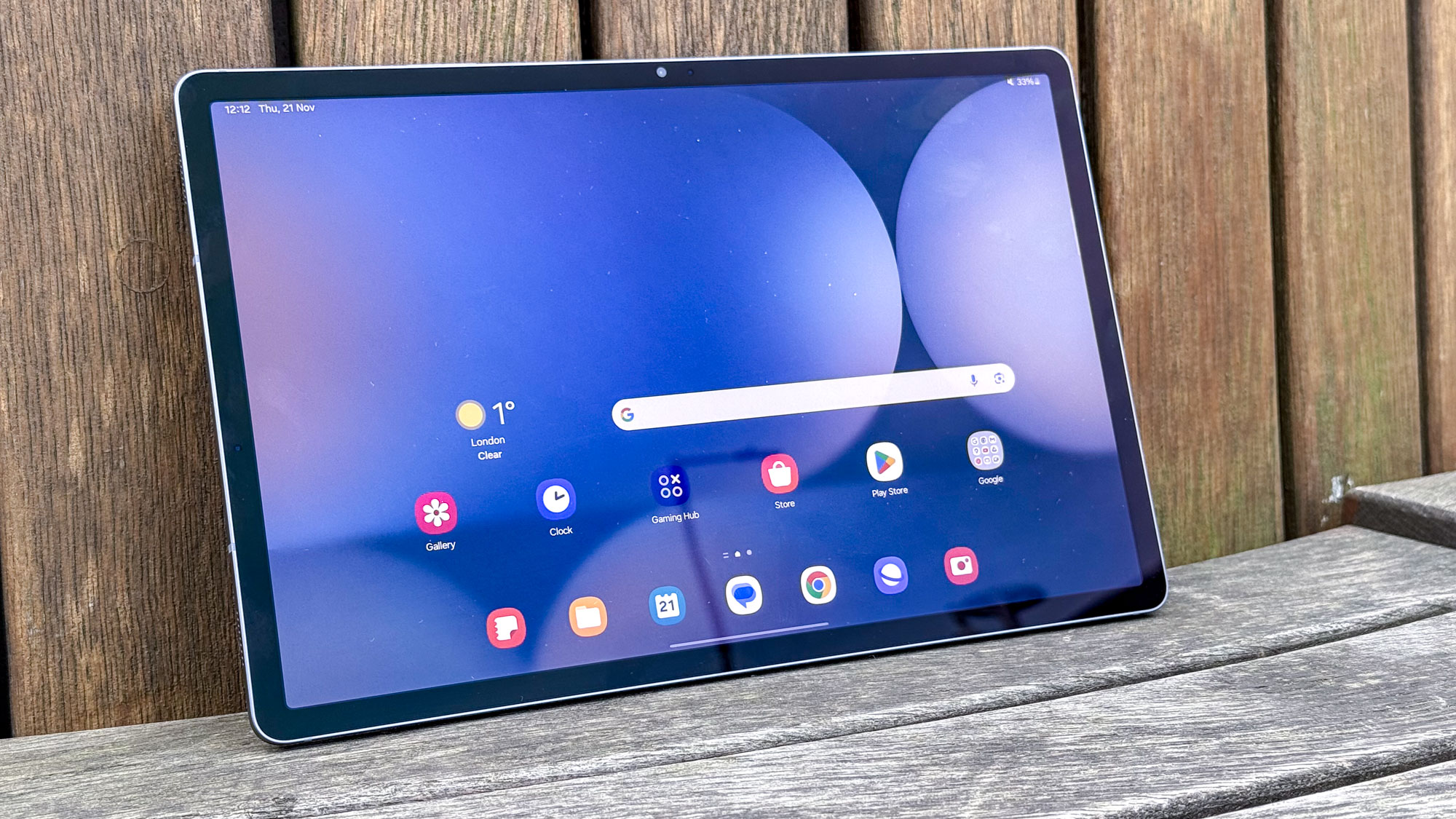
Specifications
Reasons to buy
Reasons to avoid
The 12.3-inch Samsung Galaxy Tab S10 Plus occupies the middle ground between the 11-inch Galaxy Tab S9 and 14.6-inch Galaxy Tab S10 Ultra in terms of size. It's also arguably the best answer to the iPad Pro at its price range. Even if this Android tablet hasn't received a lot of fanfare, it's worth considering.
As we said in our review, this tablet packs big specs, especially its gorgeous OLED display. And while it certainly costs more than some of the tablets on this list, it includes an S Pen stylus and is guaranteed for seven years of updates. Because of that, it has excellent long-term value compared to some rivals.
Though great at what it does, the Galaxy Tab S10 Plus has some shortcomings. Chief among these is battery life, which is less than 9 hours on a single charge. It also doesn't quite match its competitors, performance-wise. That said, if you're not extensively gaming or endlessly watching videos, battery life might not be a problem.
The Samsung Galaxy Tab S10 Plus is great for average users and professionals alike. Anyone seeking to split the difference betwween power, size and price can get a lot of use from this humble Android tablet.
Read our full Samsung Galaxy Tab S10 Plus review.
How to choose the best Android tablet
When it comes to picking the best Android tablet for you, start by thinking about the apps you want. Yes, battery life and performance are so similar across many of these tablets that you can easily cross off half of this list by thinking about if you need your next Android tablet for more than just Netflix and Spotify.
Those who want every single application on their Android phone should probably look away from the Amazon Fire tablets, as those require jumping through hoops (and disabling security protection features) to get Gmail or any of the Google apps as apps. If you don't need those apps on your tablet, or could stand to use older, less-than-stellar versions of those applications in a web browser, then you can consider the Fire tablets.
If you want all of the apps, you have three questions, each with its own answer. Are you mainly going to be consuming content? Get the OnePlus Pad 2. Looking for a machine where you can crank out a Word document and possibly replace your laptop? The Galaxy Tab S10 Ultra is right for you. Those OK with the limitations of Amazon tablets should grab the Fire HD 8 if they're shopping for folks with slightly higher standards.
If you need more guidance, we have detailed buying guides for the best Samsung tablets, the best Amazon Fire tablets, and the best cheap tablets.
How we test the best Android tablets
The first thing we do to separate the great tablets from the not-so-great is to test all their different facets.
Our web-surfing-based battery test times how long a tablet can browse the internet for, with its display set to 150 nits of brightness. But to figure out what percentage of brightness equals 150 nits, we perform a series of display tests to measure how colorful the panel can get (measured with its sRGB output number) as well as how bright it can get. Then, we run benchmark tests on said tablet, including the latest version of the Geekbench general performance benchmark.
Another thing we do to evaluate Android tablets is check out the app store to see if you're getting a true Android experience or some company's vision thereof. The latter is a major disappointment — though we don't expect anything different from Amazon at this stage. On tablets with parental control settings, we try and find the loopholes in said limitations, to find red flags before your kids can.
Then, we just use the tablets like we would if we owned them. Opening tab after tab and app after app to see if we can multitask without hiccups. We also watch YouTube videos because the color output (sRGB) and brightness (nits) measurements don't tell the whole story. Only through all of these tests, can we be sure that we're giving you a complete assessment of a tablet's value.
Sign up to get the BEST of Tom's Guide direct to your inbox.
Get instant access to breaking news, the hottest reviews, great deals and helpful tips.

Tony is a computing writer at Tom’s Guide covering laptops, tablets, Windows, and iOS. During his off-hours, Tony enjoys reading comic books, playing video games, reading speculative fiction novels, and spending too much time on X/Twitter. His non-nerdy pursuits involve attending Hard Rock/Heavy Metal concerts and going to NYC bars with friends and colleagues. His work has appeared in publications such as Laptop Mag, PC Mag, and various independent gaming sites.
